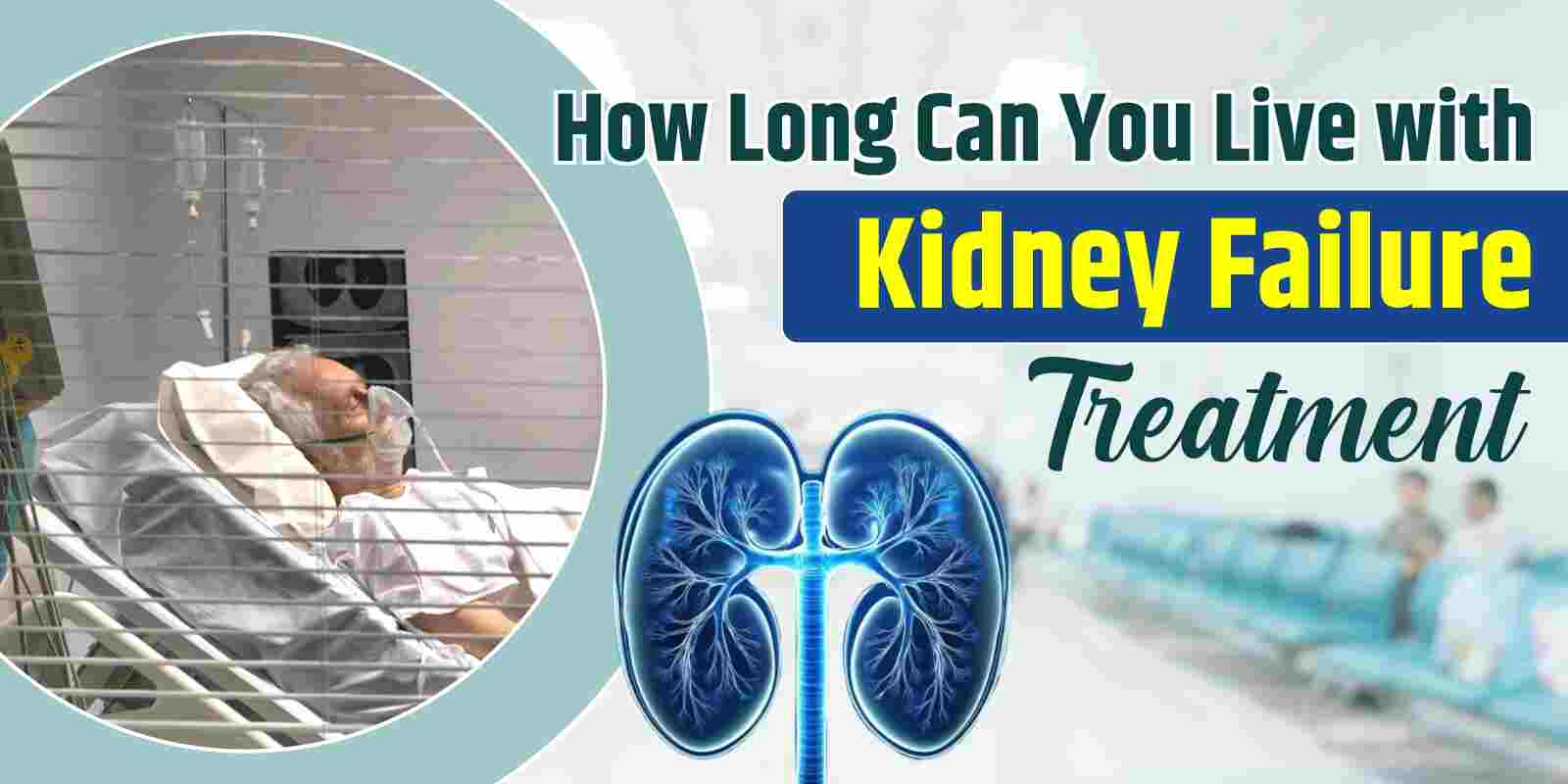
Kidney failure is one of those terms that can hit you like a freight train. The moment someone hears it, whether it’s about themselves or a loved one, the questions come flooding in. What does this mean? What happens next? And probably the biggest question of all: How long can someone live with kidney failure if they’re getting treatment?
Let's break down the information together.
Kidney failure represents a severe medical issue, yet its outcome does not match the dire predictions you might expect. The modern medical profession, along with Ayurvedic treatment for kidney failure, helps patients achieve better health outcomes with kidney failure than ever before.
The condition known as end-stage renal disease (ESRD) emerges when your kidneys fail to perform their basic function of blood filtration. After reaching this stage of chronic kidney disease (CKD), you will require either dialysis or kidney transplantation to maintain your life.
The good news: kidney failure does not signal the end of your life. People who receive appropriate support can lead active and meaningful lives after diagnosis.
So, how long can someone live with kidney failure while undergoing kidney failure treatment?
Let’s talk about the main treatments first:
Dialysis does what your kidneys can’t: it removes waste, salt, and extra water from your blood.
With dialysis, people can live 5 to 10 years on average, though many live much longer. Some people have lived 20 or even 30+ years on dialysis! It depends on individual health, age, how well you manage other health conditions like diabetes or high blood pressure, and how committed you are to treatment and lifestyle changes.
A kidney transplant can add 10 to 20 years or more to someone’s life, and in some cases, it can feel like a second chance at life. Transplants are often the best option for people healthy enough to go through surgery, as they offer more freedom and better quality of life than dialysis.
But even if a transplant isn’t in the cards, many people thrive on dialysis for years, especially with good care and a strong support system.
There isn’t a one-size-fits-all answer. Everyone’s situation is unique, but some key factors that influence how long someone lives with kidney failure include:
And let’s not forget the importance of attitude. Many patients who thrive with kidney failure treatment say the same thing: mindset makes a difference.
Let’s pause for a second.
Because while it’s natural to focus on how long someone can live, it’s just as important to talk about how well they can live.
With kidney failure, life changes, but it doesn’t stop. People go back to work, take vacations, celebrate birthdays and weddings, and find new hobbies. Yes, there are tough days. But there are also incredibly good days.
A big part of living well is self-care. Here’s what that looks like in real life:
And if you’re open to it, many people also explore Ayurvedic support alongside conventional treatment.
Ayurveda, the traditional Indian system of medicine, offers a gentle, natural way to support kidney health, especially when used alongside mainstream treatment (not as a replacement).
Some herbs like Punarnava, Gokshura, and Varun are used in kidney failure treatment in Ayurveda for supporting kidney function and helping manage fluid retention and inflammation. Treatments often focus on improving digestion, detoxifying the body, and restoring balance (or dosha) to help the kidneys do their job better.
Of course, always talk to your doctor before adding any herbal or Ayurvedic remedies—especially if you're on dialysis or post-transplant.
But for many, Ayurveda offers not just symptom relief, but also a deeper sense of well-being and balance during a challenging time.
If you or someone you love is facing kidney failure, here’s what I want you to know:
Whether you’re on dialysis, waiting for a transplant, or exploring Ayurvedic options, remember: life doesn’t stop with kidney failure. It just changes direction.
So, back to our big question: How long can you live with kidney failure treatment?
The answer isn’t carved in stone. With dialysis, people often live 5-10 years or longer. With a transplant, maybe 10-20 years or more. But beyond the numbers, there’s a whole world of life to be lived; measured not just in years, but in moments, relationships, and growth.
And every day you wake up and take care of yourself, you're not just adding time to your life; you’re adding life to your time.
"Ayurveda is not just a system of medicine; it's a way of life. Connect with us to embrace a lifestyle that nurtures your body, mind, and soul."

Certificate no- AH-2023-0186
JAN 05,2023-JAN 04,2026